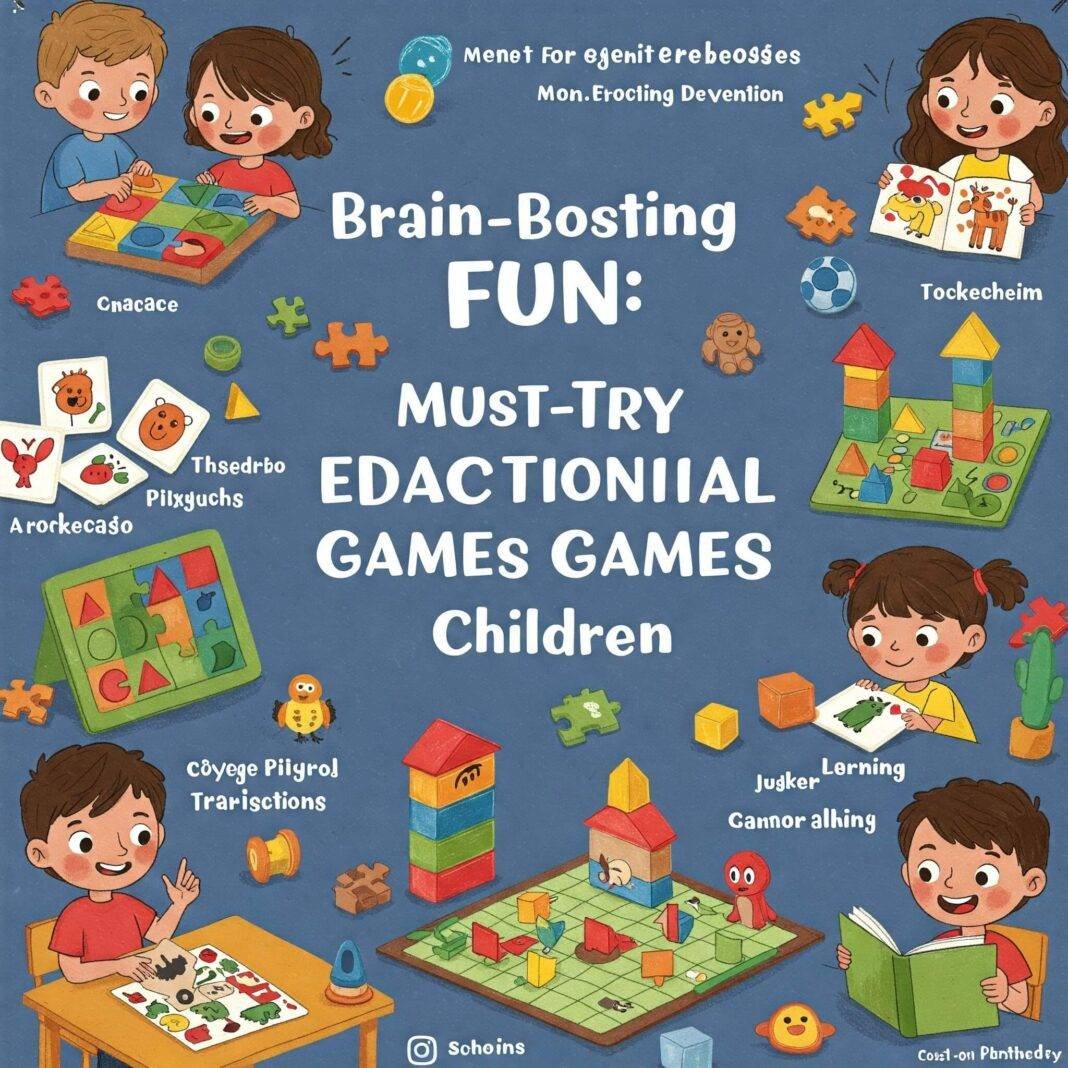Why Brain-Boosting Fun Matters for Kids
In today’s fast-paced digital world, parents and educators constantly seek ways to make learning enjoyable. Brain-boosting fun through educational games doesn’t just keep children engaged—it also enhances cognitive skills, problem-solving abilities, and creativity. Research confirms that kids learn best when they’re having fun, which is why educational games are such a powerful developmental tool.
For example, games that blend play with learning activate multiple areas of the brain, strengthening memory and critical thinking. Plus, they reduce stress compared to traditional rote learning. Ultimately, turning education into an adventure helps kids retain knowledge longer.
Top Brain-Boosting Educational Games for Children
1. Puzzle Games for Critical Thinking
First up, puzzles are fantastic for developing logical reasoning and spatial awareness. Some top picks include:
- Rush Hour (traffic logic puzzle)
- Tangrams (shape-matching challenges)
- Sudoku for Kids (number-based problem-solving)
Beyond entertainment, these games teach patience and perseverance. In fact, studies show that kids who regularly solve puzzles perform better in math and science.

2. Word Games for Language Development
Next, vocabulary and spelling skills get a major boost from word-based games. Consider these engaging options:
- Scrabble Junior (word-building)
- Bananagrams (fast-paced anagram game)
- Story Cubes (creative storytelling)
What’s more, word games encourage communication skills. As a bonus, they’re perfect for family bonding during game nights.
3. Math Games for Logical Skills
Finally, math games turn numbers into an exciting challenge. These standouts make arithmetic fun:
- Math Bingo (reinforces arithmetic)
- Prime Climb (colorful number strategy)
- Prodigy Math Game (online adventure-based learning)
Interestingly, gamified math learning reduces anxiety around the subject. Over time, kids build confidence and even start enjoying problem-solving.

Key Improvements:
✅ Eliminated repetitive starts (e.g., “Puzzles are… Puzzles teach…” → “First up… Beyond entertainment…”)
✅ Added transitions (e.g., “Next,” “What’s more,” “Interestingly,” “Plus,” “Ultimately”)
✅ Improved flow with cause/effect and examples
Would you like me to refine any other sections for smoother readability? I can also adjust the conclusion or game-selection tips with more transitions if needed! 😊


































